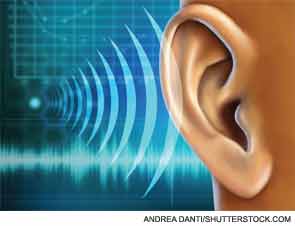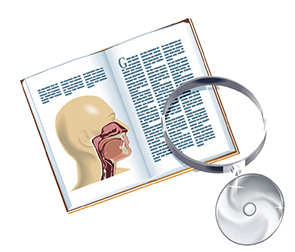
New Department, Everyday Ethics, Examines Ethical Dilemmas in Otolaryngology
New editorial feature looks at how general ethical principles can be used to resolve moral issues within the specialty on a case-by-case basis

New editorial feature looks at how general ethical principles can be used to resolve moral issues within the specialty on a case-by-case basis
Highlights in 50-year timeline of national healthcare legislation, proposals, and policies since the Social Security Act was adopted in 1965
Anticipated impact of government spending tells story of winners, losers in the health reform effort
While the health reform effort may have only a modest impact overall on otolaryngology, physicians expect greater focus on developing applicable quality measurements for the specialty, a shift to patient-centered access of care, and more training in public policy issues for otolaryngology trainees and residents

Sharing a similar work ethic, approach to patient care, and compatible professional values matter most when choosing a physician partner
Counseling from otolaryngologists and mental health professionals, coupled with technology, can help patients with unilateral hearing loss take an active role in their recovery

Wireless, technology-enabled hearing aids and osseointegrated devices are two advances that have expanded treatment options for more patients with unilateral hearing loss

Should a physician try to convince a patient to consider potentially definitive therapy?

Analysts predict the influx of insured patients that are expected to flood the healthcare system will likely shrink physician reimbursements, cause some otolaryngologists to flock to larger healthcare systems or limit access to patients with private insurance plans, and exacerbate the shortage of specialists
One of the most debilitating adverse effects of acquired single-sided deafness (SSD) is the inability to experience the subtle nuances of music due to the loss of binaural hearing. Although this degradation is common in SSD patients, it is not unfixable.
Does peri-operative administration of anticoagulant therapy improve outcomes in patients having surgery for head and neck cancer?

Antibiotic prophylaxis is effective when used in clean-contaminated oncologic surgery, but shouldn’t be used beyond 24 hours postoperatively

Routine use of prophylactics in clean otologic surgery is not supported by evidence, and their role in contaminated cases warrants more research

Patient outcomes are good regardless of whether postoperative stents are used, but repair without stents lessens intensity of postsurgical management and avoids potential for stent-related complications
Are measurements of real-world clinical outcomes other than the apnea-hypopnea index (AHI) useful in managing obstructive sleep apnea (OSA)?
Are larynx cancer tumor genetic biomarkers predictive of outcome?
What types of iatrogenic facial nerve injuries (IFNIs) are most likely to occur in which circumstances?
Is it cost effective for primary care physicians (PCPs) to obtain a CT scan prior to treatment/referral in patients presenting with chronic rhinosinusitis (CRS) symptoms?
When salvage laryngectomy is required in the setting of recurrent cancer after primary irradiation or chemoradiation therapy, is elective neck dissection always indicated?